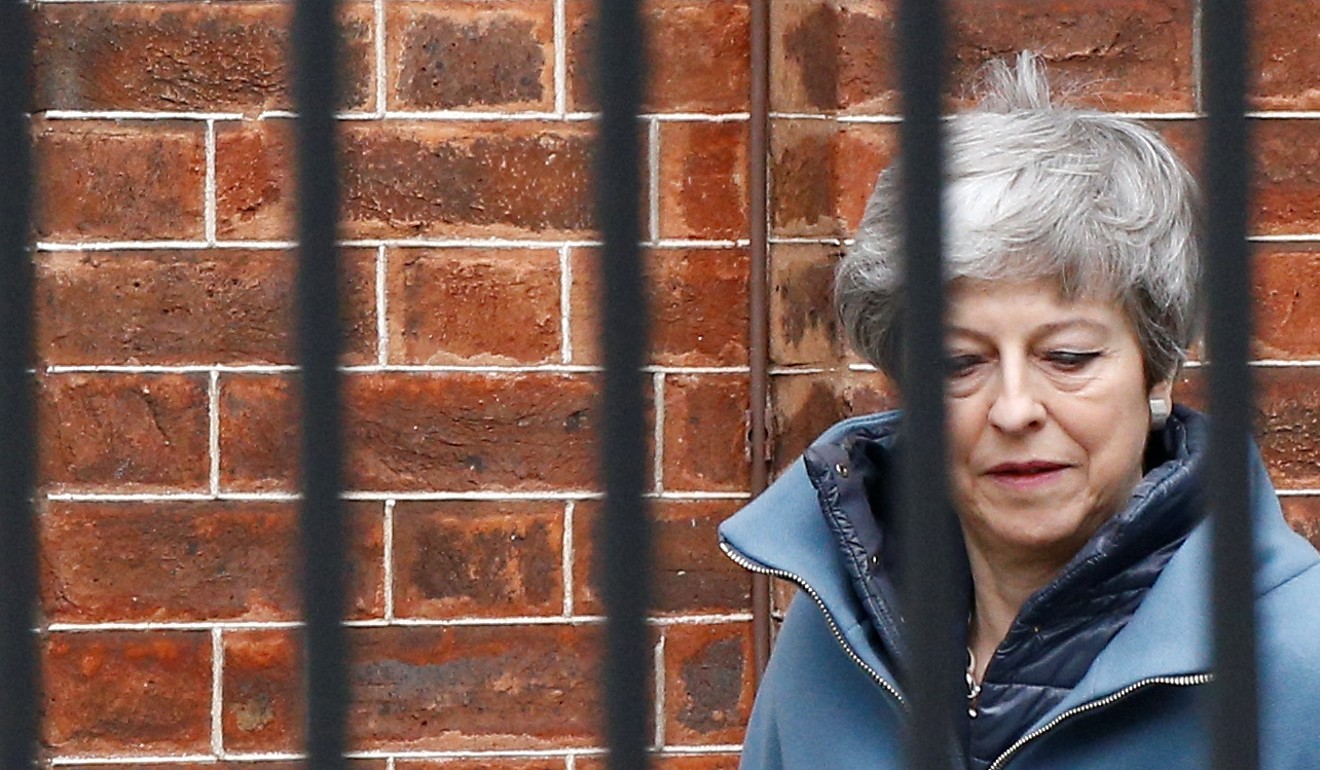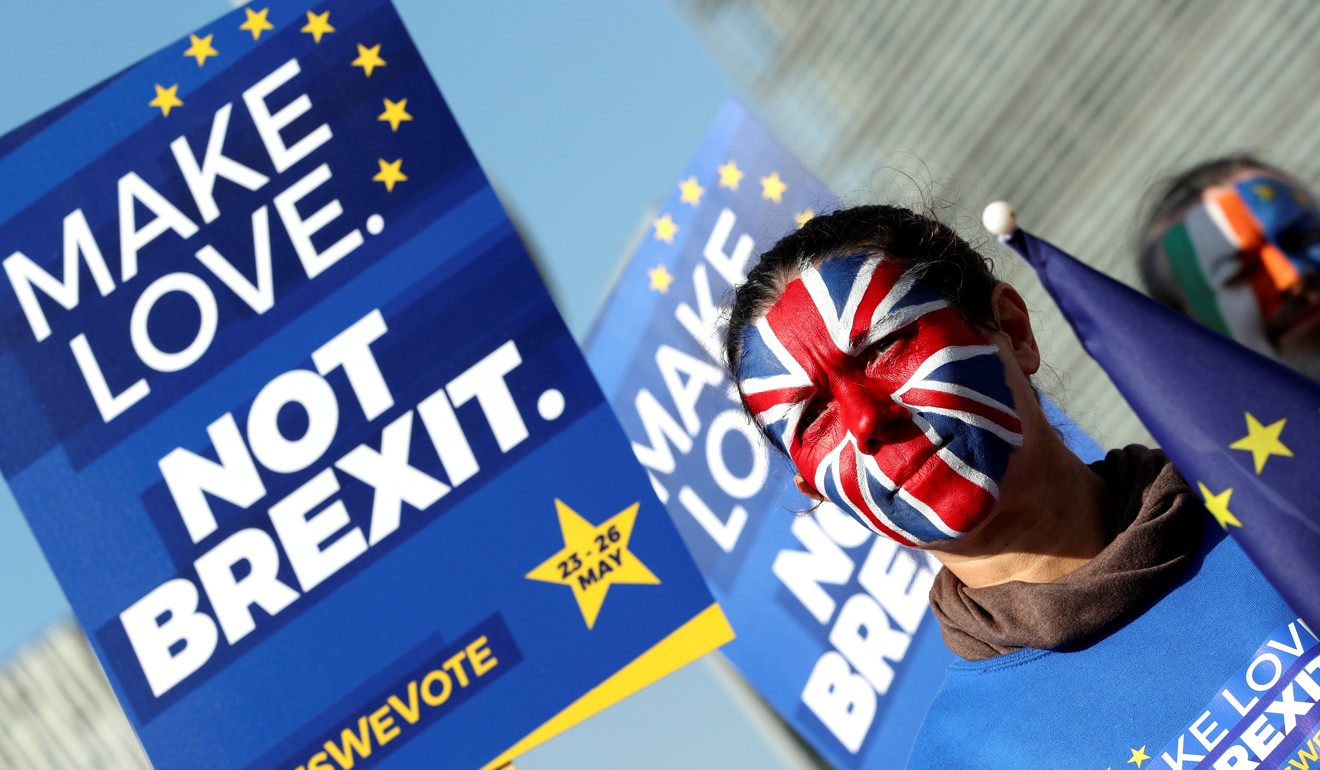
EU rejects UK Prime Minister Theresa May's request for three-month Brexit delay: sources
- EU ambassadors have reportedly agreed that the risks of having the UK as a member state beyond May 23, when European elections are due, are too high

The European Union is poised to take control of Britain’s exit by rejecting Theresa May’s request for a three-month delay and setting a new withdrawal date of no later than May 22.
The British prime minister is seeking an extension of the negotiating period to June 30 to allow the necessary legislation to be passed should she finally get MPs to back her deal next week.
But EU ambassadors at a meeting late on Wednesday night agreed that the risks of having the UK as a member state beyond May 23, when European elections are due, were too high.
Sources said that during the discussions some member states had favoured “a longer period and some a shorter” but that the room coalesced around May 22 as the absolute limit.

The heads of state and government will hold a discussion later on Thursday, after being addressed by Theresa May, and will have to agree unanimously on the extension on the date to be written into its summit communique.
“May 22 has to be the limit,” one senior diplomat said. “The reason is that there has got to be a very clear message from the European council. Yes, to a short extension on condition that the prime minister passes her deal through the Commons. But beyond that it is utterly complicated. It cannot be done without British MEPs having been elected.”
The European parliament’s Brexit coordinator, Guy Verhofstadt, said: “There will be a problem with June. It is absolutely not in the interests of the European Union for it to beyond the date of the European elections.”
Unusually, draft council conclusions - the summit communique issued at the end of meetings of the leaders - were not circulated among the ambassadors.
Sources said the EU’s leaders would have a freewheeling debate about the extension request.
The position taken by the ambassadors represents a shift in mood of the member states, who had been reluctant to accept the European Commission’s conclusion that an extension could not go beyond May 23 without British MEPs being elected.
The EU’s legal service had indicated that July 1 was the real “legal backstop” for an extension as it is on the July 2 that the parliament convenes.

But the chaos in Westminster has convinced the EU capitals of the dangers that the UK would end up remaining a member state beyond even then without British MEPs having been elected. Such a result could leave the EU’s institutions in “paralysis”, the bloc’s lawyers have advised.
The prime minister’s insistence in her letter seeking an extension, and in the Commons, that she would not hold elections while in Downing Street helped to crystallise the EU’s thinking, sources said.
The ambassadors on Wednesday night did agree that the Strasbourg papers, in which the EU has offered fresh assurances over the temporary nature of the Irish backstop, would be adopted by the leaders.
There was a debate among the diplomats over whether the EU would write in a date into their summit communique on Thursday, but it was eventually agreed that they should.
There remains a chance that the extension could be even shorter than May 22, as the British authorities would need time to organise elections. But a delay of a few weeks would be likely to solve little, senior diplomats had argued. “It would be useless,” said one.
Verhofstadt, a former Belgian prime minister, said it was time for May to work cross-party to find a majority. “The problem is that Brexit is not being treated as an existential crisis on the table of British politics but as an element in a war between the Conservatives and Labour”, he said.